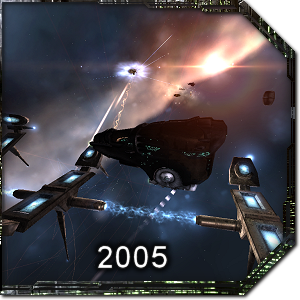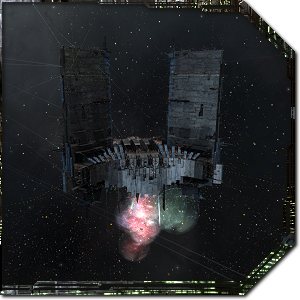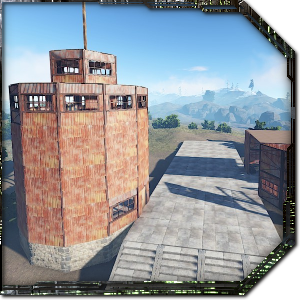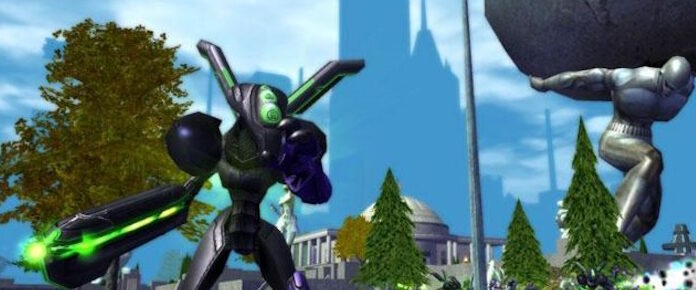
EVE Online has practically dominated the sci-fi sandbox MMO niche for nearly 14 years, with its harsh PvP-oriented gameplay and massive single-server universe combining to provide something that’s remained compelling in an ever-changing industry. From its humble foundation as a mostly empty sandbox with a smattering of people and limited resources has sprung political intrigue, war, espionage, charity, theft, and economics that often mirrors the real world in startling detail. In over a decade of virtual history, we’ve seen the rise and fall of massive empires, the birth and collapse of industries, the emergence of heroes and villains, and the forging of thousands of real life friendships.
While EVE‘s long-term success can be attributed partly to the absolute persistence of a single-shard universe, I often wonder what would happen if a fresh server opened today. What could players achieve with a level playing field and blank slate for all, and what would the EVE universe even look like without 14 years of accumulated wealth and skillpoints behind it? A tantalising hint of what that gold rush might look like comes from survival sandbox games such as RUST and DayZ, which have hundreds of small servers and very little focus on persistence. It’s got me thinking about what a shorter-term survival sandbox game with EVE‘s core gameplay would be like, and I honestly think it could be amazing.
In this edition of EVE Evolved, I make the argument for an EVE Online survival sandbox game and the massive gameplay opportunities that periodic server wipes can present.
 A fresh start every month
A fresh start every month
In EVE‘s earliest years, it wasn’t uncommon for players to mine all the minerals for a new ship and build it by themselves. I recall spending long nights mining in an Imicus for the minerals to build my first Thorax, even risking heading into nullsec with some friends to mine for the Zydrine required. People banded together into corporations, specialising in roles such as refining or production as needed by the group and working toward common goals such as getting everyone into battleships.
This became less necessary as EVE‘s economy matured, and today practically everyone just farms for ISK using their method of choice and buys ships and modules from producers on the market. There’s a lot of old money in EVE today, with mega-rich individuals now dominating the markets for highly traded items and the larger alliances sitting on impossibly large war chests. Those early days of emerging corporate arms races, low population density, and self-reliance were part of a transitory period in EVE‘s history that can never come again, though we’ve seen shadows of it in early wormhole expeditions.
A similar dynamic emerges in the first day or so after a server wipe in RUST, as players frantically farm assets or hunt the farmers to steal what little they have. Action RPGs Path of Exile and Diablo III do the same thing with game seasons, and a wave of players always returns at the start of each new season to play with a fresh game economy. There’s a sense of opportunity in starting fresh like this, because if you and your friends play really well then you can get a leg up on everyone else and have a great season. An EVE survival game could keep this going by wiping the servers every month or so, prompting groups to rush to establish themselves and work out new strategies for the next wipe.
 A lack of persistence
A lack of persistence
EVE Online is a fundamentally long-term game, with many players having years of play under their belts and the training time for some skills measured in weeks. Players invest heavily into their characters and possessions over the course of years, and the largest alliances can accumulate enough funds to build colossal projects such as Keepstar citadels and supercapital ships. The fact that the EVE universe is persistent encourages long-term gameplay in which players make steady progress toward goals, whether it’s a single player grinding up the ISK to buy a ship or an entire alliance waging a territorial war over the course of months.
An EVE survival game that gets reset every month or so would present the opportunity to short-circuit all of the slow gameplay, turning everything up to 11 for a much faster-paced game with shorter-term gameplay. Imagine mining yields and cargo capacities multiplied by a factor of 10, drop rates of all loot and NPC bounties massively increased, manufacturing rates increased, warp speeds increased, and skill training speeds of 100 million skill points per month.
Since you know that the server will eventually be reset, there’s no problem with assets accumulating to crazy levels. A new player could farm the materials to build a fleet of cruisers or a couple of larger ships in their first few hours, so losing a ship wouldn’t be such a big deal. You could also do things you could never accomplish on the main server, such as piloting a titan or owning a Keepstar citadel.
 Building and raiding bases
Building and raiding bases
The current development focus for EVE Online is on world-building mechanics, with the recent deployment of Citadel structures and the upcoming release of drilling platforms later this year. With a fully persistent universe, CCP has to be careful to balance the price and destructibility of structures so that they’re useful but aren’t just spammed everywhere. Citadels accomplish this with short vulnerability periods every week during which they can be attacked and an asset safety system that prevents ships and items inside them from being destroyed or stolen.
If you throw the idea of long-term persistence out the window for a survival server that resets every month or so, suddenly all of those considerations vanish and you can be a lot more brutal. RUST has an interesting angle on destructibility and world-building in a temporary world, with basic structures being super cheap to build but players having to farm resources to upgrade their defences. The servers are usually full of abandoned and destroyed structures by the end of the month, and a few large groups will have emerged victorious with practically impenetrable bases, but that’s OK in a game where the server is periodically wiped.
In an EVE survival game, all structures could be permanently vulnerable and drop full loot when destroyed, and there might be no safe NPC stations to live in at all. The increased rate at which players can gather assets would help to mitigate the loss and let people rebuild or counter-attack when they lose their home. You could have small structures like depots that anyone could deploy for free, and then a system for upgrading them to larger citadels when you store the required resources inside, plus additional structures like turrets. Every wipe would eventually end up with one group emerging as the clear winner on each server, and that’s OK.
There will be those of you who groan at the mere mention of survival sandbox games, but EVE Online has essentially always been that type of game; It’s just a very long-term one. The core of EVE Online is putting players in a box with limited resources the tools to smash each other over the head, and that works equally well on long and short time scales.
With some big changes, EVE‘s core gameplay could be used to produce an amazing seasonal PvP game with small servers that get periodically reset. The grindy gameplay elements could be eliminated, different rule sets and mutators could be applied to different servers, new procedural maps could be generated, and new gameplay changes could be tested in a microcosm of the real EVE. It would just be EVE Online turned up to 11 and given a big shake every month, and that could be amazing.
 EVE Online expert Brendan ‘Nyphur’ Drain has been playing EVE for over a decade and writing the regular EVE Evolved column since 2008. The column covers everything from in-depth EVE guides and news breakdowns to game design discussions and opinion pieces. If there’s a topic you’d love to see covered, drop him a comment or send mail to brendan@massivelyop.com!
EVE Online expert Brendan ‘Nyphur’ Drain has been playing EVE for over a decade and writing the regular EVE Evolved column since 2008. The column covers everything from in-depth EVE guides and news breakdowns to game design discussions and opinion pieces. If there’s a topic you’d love to see covered, drop him a comment or send mail to brendan@massivelyop.com!















